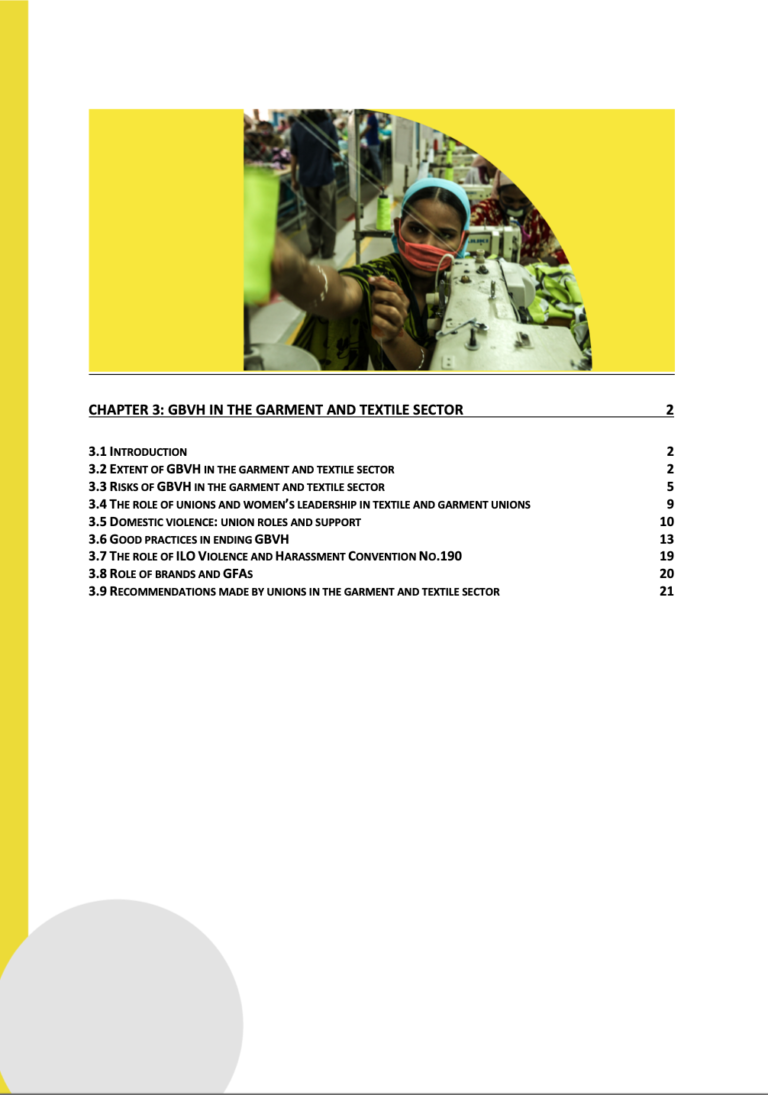This chapter documents the research carried out in the garment and textile sector. Individual and group interviews were carried out with 26 women trade union leaders and union representatives from unions in four garment producing countries: El Salvador (FEASIES), Indonesia (GARTEKS and SPN), Lesotho (IDU) and in Turkey (Deriteks, DISK/TEKSTIL, Öz Iplik-Is and TEKSIF).
This chapter makes also reference to some of the findings of a parallel research conducted with the support of the DGB Bildungswerk Bund in Bangladesh and Morocco involving women union leaders in Bangladesh (SGSF, BGIW and IBC) and Morocco (SNTHC-CDT, UMT).
In the garment and textile sector, GFAs with multinational companies,i the integration of GBVH into the recently agreed ILO Code of Practice on health and safety in the garment and textile sector (ILO 2021), and reporting on sexual harassment under the new International Accord for Health and Safety in the Garment and Textile Industry in Bangladesh,ii along with union campaigns, training and awareness raising, have all contributed to much greater awareness of GBVH in the sector.

